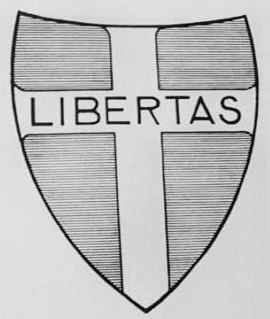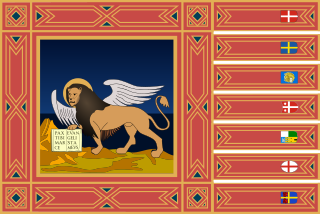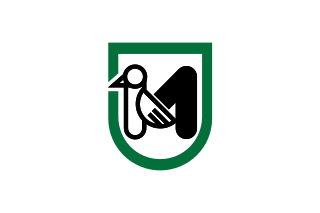 |
|---|
|
The Marche regional election of 1980 took place on 8 June 1980.
Contents

 |
|---|
|
The Marche regional election of 1980 took place on 8 June 1980.

The Italian Communist Party was the largest party, narrowly ahead of Christian Democracy, but again it obtained less seats for a trick of the electoral law. Consequently, after the election Emidio Massi, the incumbent Socialist President, formed a new government including also the Christian Democracy, the Italian Democratic Socialist Party and the Italian Republican Party (organic centre-left). [1]
 | ||||
|---|---|---|---|---|
| Parties | votes | votes (%) | seats | |
| Italian Communist Party | 355,444 | 37.2 | 15 | |
| Christian Democracy | 354,478 | 37.1 | 16 | |
| Italian Socialist Party | 95,989 | 10.1 | 4 | |
| Italian Democratic Socialist Party | 42,770 | 4.5 | 1 | |
| Italian Social Movement | 41,182 | 4.3 | 1 | |
| Italian Republican Party | 36,274 | 3.8 | 1 | |
| Proletarian Unity Party | 14,564 | 1.5 | 1 | |
| Italian Liberal Party | 13,660 | 1.4 | 1 | |
| European Workers' Party | 541 | 0.1 | - | |
| Total | 954,902 | 100.0 | 40 | |
Source: Ministry of the Interior

The Italian Communist Party was a communist political party in Italy.

Arnaldo Forlani, is an Italian politician and statesman who served as the 43rd prime minister of Italy from 18 October 1980 to 28 June 1981. He also held the office of deputy prime minister, minister of Foreign Affairs and minister of Defence.

The Italian Democratic Socialist Party, also known as Italian Social Democratic Party, was a minor social-democratic political party in Italy. The longest serving partner in government for Christian Democracy, the PSDI had been an important force in Italian politics, before the 1990s decline in votes and members. The party's founder and longstanding leader was Giuseppe Saragat, who served as President of the Italian Republic from 1964 to 1971.

The Italian People's Party, also translated as Italian Popular Party, was a Christian-democratic political party in Italy inspired by Catholic social teaching. It was active in the 1920s, but fell apart because it was deeply split between the pro- and anti-fascist elements. Its platform called for an elective Senate, proportional representation, corporatism, agrarian reform, women's suffrage, political decentralization, independence of the Catholic Church, and social legislation.

The Venetian regional election of 1980 took place on 8 June 1980.

The Politics of Marche, Italy takes place in a framework of a semi-presidential representative democracy, whereby the President of the Region is the head of government, and of a pluriform multi-party system. Legislative power is vested in the Regional Council, while executive power is exercised by the Regional Government led by the President, who is directly elected by the people. The current Statute, which regulates the functioning of the regional institutions, has been in force since 2004.

The Calabrian regional election of 1990 took place on 6 and 7 May 1990.

The Piedmontese regional election of 1980 took place on 8 June 1980.

The Calabrian regional election of 1980 took place on 8 June 1980.

The Ligurian regional election of 1980 took place on 8 June 1980.

The Marche regional election of 1970 took place on 7–8 June 1970.

The Marche regional election of 1975 took place on 15 June 1975.

The Marche regional election of 1985 took place on 12 May 1985.

The Marche regional election of 1990 took place on 6 and 7 May 1990.

The Sardinian regional election of 1979 took place on 17 June 1979.

The Italian regional elections of 1980 were held on 8 and 9 June. The fifteen ordinary regions, created in 1970, elected their third assemblies.

The Italian regional elections of 1985 were held on 12 and 13 May. The fifteen ordinary regions, created in 1970, elected their fourth assemblies.
The Pentapartito, commonly shortened to CAF, refers to the coalition government of five Italian political parties that formed between June 1981 and April 1991. The coalition comprised the Christian Democracy (DC) party and four secular parties: the Italian Socialist Party (PSI), Italian Democratic Socialist Party (PSDI), Italian Liberal Party (PLI) and Italian Republican Party (PRI).

The 1993 Italian local elections were held on 6 and 20 June, on 21 November and 5 December. It was the first time where citizens could vote both for the mayor and the city council, as for the provincial president and the provincial council.